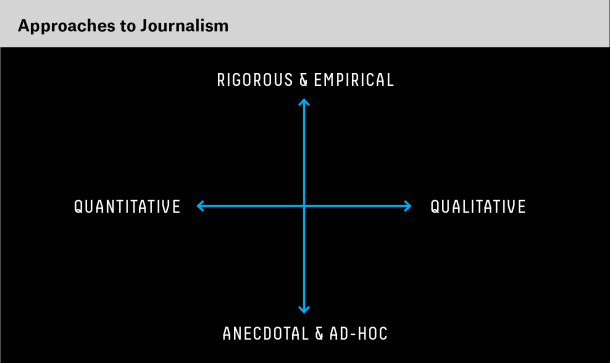A few days ago, the new version of Nate Silver’s FiveThirtyEight went live, backed by ESPN.
According to Silver’s observations, explained in his site’s manifesto, the market is ripe for a data-oriented journalism.
I totally agree. A day doesn’t go by in which I hear or read an argument that painfully drags along because of its lack of data. Facebook, Twitter and the traditional media are full of these poorly documented ideas and debates.
I don’t know how it is in other countries, but where I come from, us engineers chose our career because we were socially awkward and/or bad with words, whereas others chose mass communications because they were poor at math. Turns out that basic math and the arithmetic rule of three are insufficient tools for explaining complex phenomena in the real world.
One of the first posts in FiveThirtyEight was precisely about my home country and it coldly and matter-of-factly explains the current political crisis just using numbers.
I think that you either believe in science (and the importance of science) or you don’t. And it’s a dogma. People from one camp just cannot have arguments with the other because they live in different realities. “Do you believe in science? Do you know how to spot a tainted poll?” should be the starting questions for any debate.
And if you believe in science and want to have intelligent discussions or want to report the issues, then you better take a look at the numbers and take the time to understand them. We are living in a world with a fantastic overabundance of data, in which public databases are just a click away, tools like Excel and R allows you to do statistical analysis and sites like FiveThirtyEight digest and explain what the data says in (somewhat) easier terms. There’s no excuse –besides trolling– for being an ill-prepared journalist or discussing well-documented issues using false premises.
